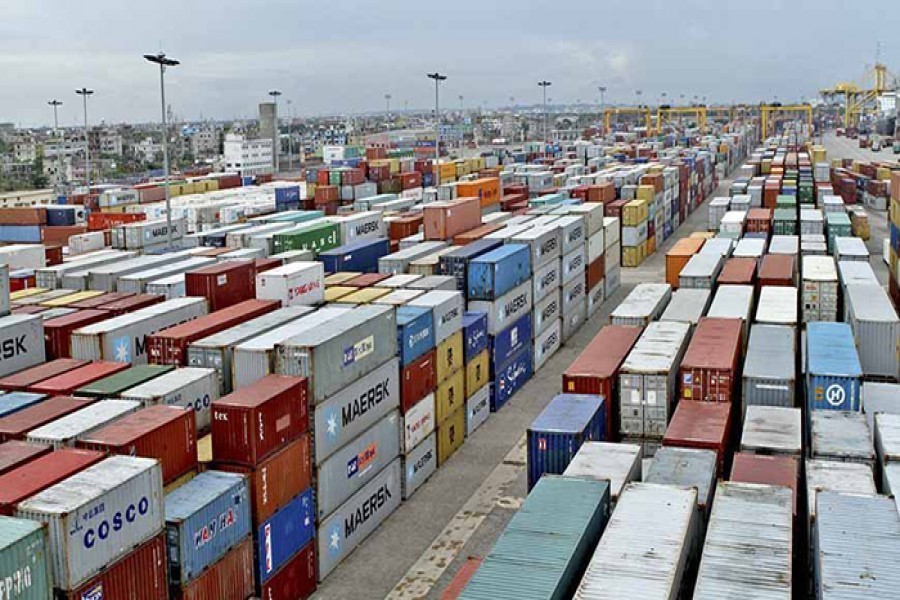Bangladesh's export-competitiveness improved to some extent as Real Effective Exchange Rate (REER) of the local currency decreased nearly 1.8 per cent in June on a quarter-on-quarter basis, though it spurs inflation.
The country's REER - a measure of the value of a currency against a weighted average of several foreign currencies - depreciated to 110.41 in June 2021 from 112.41 in March, according to the central bank.
The monetary benchmark, REER, helps in analyzing the country's competitiveness for its trade in goods and services with its trading partners and competitor countries.
A decrease in it implies that exports have become cheaper and imports more expensive. Therefore, a decrease indicates a gain in trade competitiveness -- and this is the fundamental rule as per the International Monetary Fund (IMF).
Analysts say REER below 100 means the country's exports remain competitive and imports expensive. This arithmetic reverses when REER rises above 100.
In the meantime, economists believe that this drop is primarily due to the depreciation of the local currency against the US dollar. Two factors are believed to be important to influence the rate of real effective exchange: inflation in Bangladesh over its competing nations and nominal exchange rate.
The nominal exchange rate (NER) depreciated 1.2 per cent to Tk 85.8 (intern-bank Tk-USD exchange rate) in November. But the 'kerb-market' rate remained much higher.
REER is an index number that is free from any measuring unit and is calculated with reference to a particular year called the base year, which is arbitrary and subject to change over time.
Dr Ahsan H Mansur, executive director at the Policy Research Institute of Bangladesh (PRI), a private think-tank, says: "This drop is definitely favourable for export."
Inflation has been increasing around the globe since the reopening of the economies. Bangladesh is no exception, he told the FE.
"We've only one option -- to depreciate local currency to keep stable REER over its competition nations," said Dr Mansur, also chairman of BRAC Bank.
On the other hand, Dr Masrur Reaz, chairman at Policy Exchange of Bangladesh, another local think-tank, told the FE that the drop in the REER is a reflection of nominal exchange drop.
But, he thinks, there is challenging issue as to how much to devalue the local currency. "If we devalue much our currency, the imports will be expensive, leading to rise in inflation.
"Balancing between the export-competiveness through exchange rates and the devaluation is a tough issue."
However, exporters say the currency should have been depreciated much to remain competitive on the global market.
They said recent price spike of fuels has chain effect on the economy and it made the clothing manufacturing expensive.
"The overall cost of manufacturing has surged following price adjustments of fuel with the international oil market," said Anwar Ul Islam Pervez, managing director at one of the leading RMG manufacturers --- Evince Group.
He said the currency should be devalued further in order to remain competitive globally.
In the meantime, country's export receipts registered a sharp increase by nearly 23 per cent during the past four months to October of this fiscal year. It increased over 15 per cent in the past fiscal year (202-21), according to Export Promotion Bureau.


